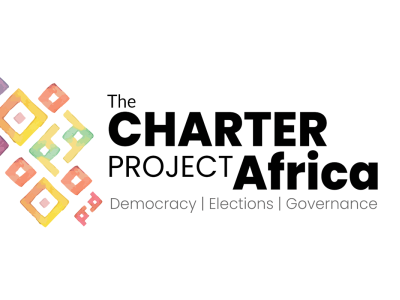
Can ‘Responsible Investment Principles’ de-polarise the debate on agricultural PPPs in Africa?
What's on this page
The use of public-private partnerships (PPPs) to promote agricultural development is becoming increasingly prominent in Africa, but has provoked fierce criticism due to concerns about their impact on local communities. There is a clear need for these instruments to mitigate the risk of large-scale investments to these communities and to ensure best practice is followed. Recent years have seen the emergence of a number of public-private partnerships to promote agricultural production in Sub-Saharan Africa, including ‘growth corridors’ such as the Southern Agricultural Growth Corridor of Tanzania (SAGCOT) and the Nacala Growth Corridor in Mozambique. The discourse around such PPPs, however, is highly polarised. Advocates tout various benefits, such as the fact that by bringing together different stakeholders, PPPs provide a forum for i) discussing and developing policies that are truly responsive to the needs of all stakeholders and ii) promoting investment that is sensitive to local socio-economic and environmental circumstances. The Environment and Climate Compatible Agriculture project (ECCAg) being run in the SAGCOT region illustrates the potential benefits of agricultural PPPs in Africa. ECCAg, which is being led by multinationals Yara and Syngenta, in partnership with the Sokoine University of Agriculture and the Norwegian University of Life Sciences, has been examining whether the intensification of agriculture through improved agronomic protocols can boost productivity and profitability at the farm level in an environmentally sustainable way. Test results show significantly improved crop yields and increased farmer profitability. On the other hand, civil society organisations have been heavily critical of agricultural PPPs due to their perceived negative impacts on land rights and inequality and the fact that many appear to be paying “insufficient attention to the interests, needs and priorities of smallholder farmers”. This last issue is particularly important given the ubiquity of smallholder agriculture in Africa and the need to ensure the viability of this sector in order to improve food security on the continent. Concerns have also been raised about the commercial sustainability of many PPPs and the imbalanced nature of the relationships between their participants. The example of ProSAVANA in Mozambique illustrates some of the challenges associated with agricultural PPPs in Africa. This trilateral (Brazilian-Japanese-Mozambican) programme aims to transform the agricultural sector along the Nacala Growth Corridor by promoting collaboration between small and medium-sized farmers and investors. In particular, it seeks to facilitate the development and transfer of appropriate technology, the formulation of an agriculture development Master Plan to attract investment and an increase in the availability and quality of agricultural extension services in the target area. Despite these laudable aims, ProSAVANA has been criticised for a lack of transparency, public consultation and public participation, and for promoting land grabbing, and has been the target of a campaign led by the National Farmers Union of Mozambique. A recent scoping study into ProSAVANA identified a number of challenges, including: a lack of concrete plans and mechanisms for protecting smallholders’ rights; the fact that legally required consultation often involves little more than lip service; and disparities between communities’ expectations and investors’ intentions for compensation. Nevertheless, the study also found that mutually beneficial agreements have been reached between investors and communities in the Nacala region, as in the case of certain ProSAVANA pilot projects. Much of the opposition to PPPs such as ProSAVANA relates to the potential risks to local communities of the investments that these PPPs aim to stimulate (and concerns that local communities are often not adequately informed of these risks). But these sorts of investments in African agricultural are likely to happen regardless of the existence of PPPs. In fact, PPPs provide, at least in theory, a useful mechanism for mitigating such risks through ensuring transparency and accountability, clarifying land rights, engaging smallholder farmers in the design and development projects and ensuring that investors adhere to the highest international standards of practice.There is not enough evidence, however, about successful (or failing) PPPs, due, among other things, to a lack of widely accepted and utilised benchmarks for assessing 'success” and 'sustainability'. In the case of ProSAVANA, investors are expected to comply with the recently approved Principles for Responsible Investment in Agriculture and Food Systems (RAI), which include principles on land tenure and usage rights, transparent and effective governance and accountability. Although the experience of ProSAVANA thus far suggests that there is a big gap between merely adopting such principles and ensuring that they result in best practice, such guiding principles are nevertheless crucial to addressing the many concerns raised in relation to agricultural PPPs and the investments that they aim to attract. Questions remain over how to actually operationalise the RAI (and other similar principles). The EU and EU member states can therefore assist efforts to ensure agricultural development in Africa by, among other things, contributing to thinking on how to operationalise the RAI, promoting their application by EU private sector investors, raising awareness of the RAI among EU consumers, promoting them in dialogue with partner states and providing support to African countries to adopt them, either in terms of general laws, or in the context of specific PPPs. Effective and operationalisable RAIs could be the key to de-polarising the discourse on PPPs in African agriculture by promoting better monitoring of successes, failures and sustainability, and, therefore, more evidence-based public-private dialogue. The views expressed here are those of the authors, and not necessarily those of ECDPM.
Loading Conversation



